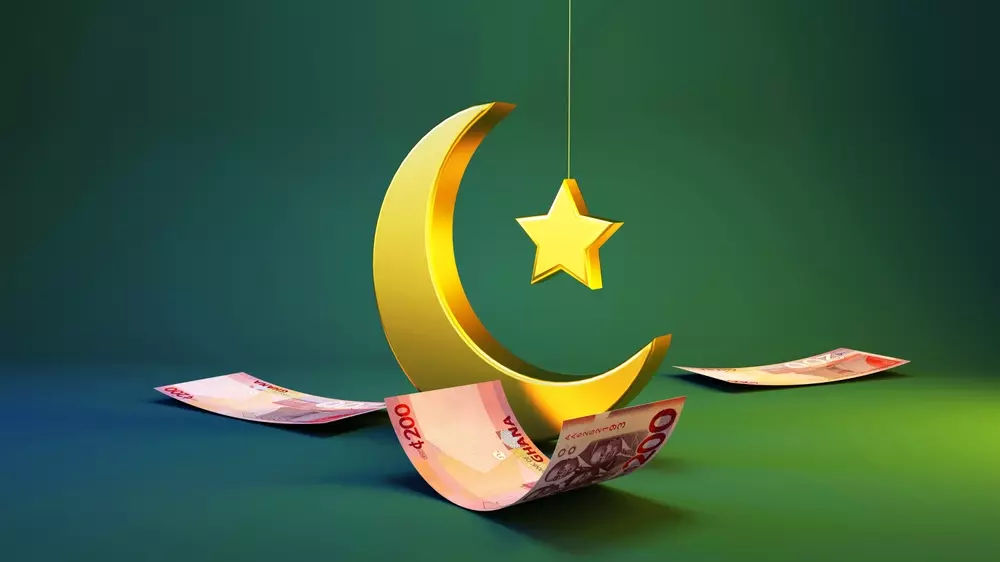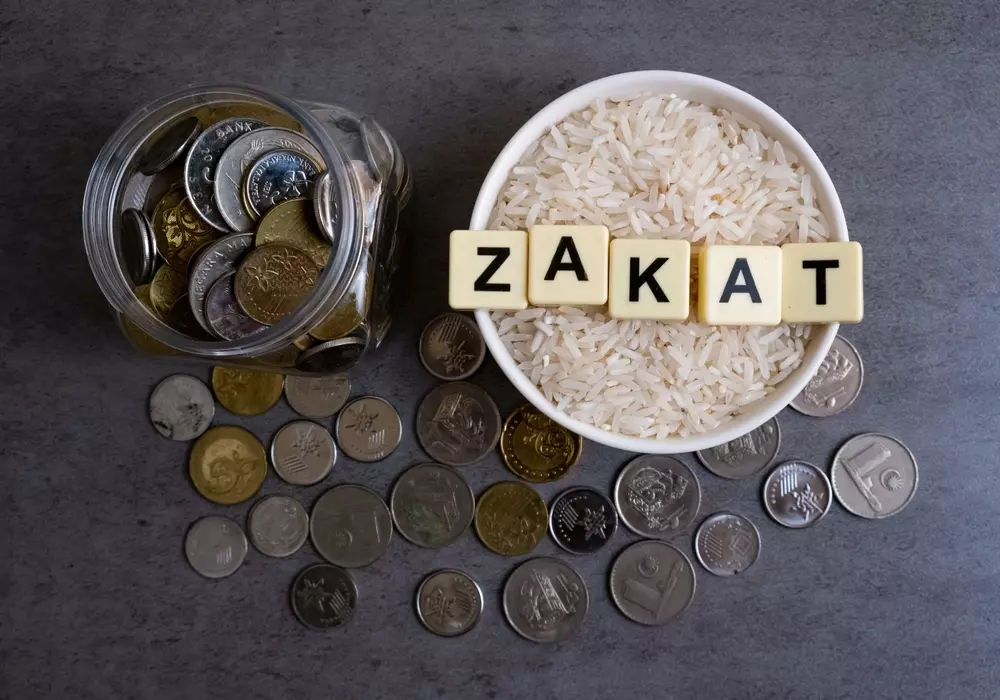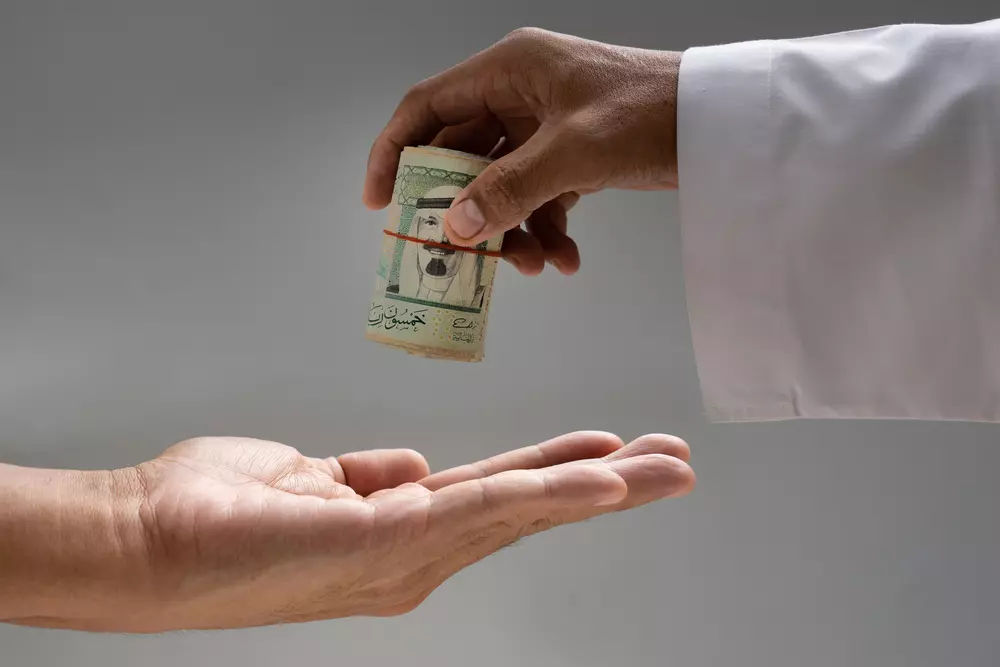Giving charity in Islam is at the forefront and foundation of a believer’s faith. The emphasis of giving charity can be seen through the teachings of the Prophet Muhammad (PBUH), as well as through the mentioning of it in the Quran.
Prophet Muhammad (PBUH) said: Do not show lethargy or negligence in giving alms and charity till your last breath. [Bukhari and Muslim]
Though there are many forms of charity, one of the most prominent forms of charity in Islam is Zakat.
What is Zakat
The term Zakat in Arabic translates to ‘cleanse’ or ‘purify’. Zakat is one of the five pillars of Islam and is Fardh (mandatory) upon a Muslim who meets the criteria to donate.
Zakat is based on the value of a person’s income and value of possessions. The minimum amount for those who qualify must calculate 2.5% of their applicable wealth and savings and pay this as Zakat.
This fixed portion of wealth donated annually is to purify earnings and assist those that are underprivileged.
There are eight categories for recipients of Zakat:
- The Poor – Those on a low income
- The Needy – Someone who is in difficulty or extremely deprived.
- Zakat Administrators – Those employed to collect and calculate Zakat
- Those Whose Hearts are to be Reconciled – The ones who are inclined towards Islam
- Those that are in Bondage – (referring to slaves)
- Those that are in Debt
- In the cause of Allah – (projects that are uplifting the Muslim community to widen Islamic growth)
- The Wayfarer – this refers to those who are stranded or travelling with very few resources.
What is Sadaqah
Sadaqah is a general term used for giving charity in Islam. There are many forms of Sadaqah, however, these types have been divided into the following two categories which both have separate rulings:
Sadaqah Waajibah & Sadaqah Nafilah.
Sadaqah Wajibah: (Not obligatory like Zakat, but beneficiary to be Muslim)
This type of sadaqah includes: Sadaqatul Fitr, Fidya, Kaffarah, and Udhiyyah.
What is Sadaqatul Fitr: this is a donation to be given before the Eid ul Fitr prayer. It is advised to be given a couple of days before Eid to be able to be utilised by the poor on Eid day. The amount must be equivalent to that of 1.6kg of wheat or 3.2kg of Barley, or of its value.
This form of charity is an emphasised Sunnah and remains due no matter how much time passes after Eid.
What is Fidya
Fidya is a form of compensation for someone who is unable to fast or pray due to a terminal illness. The amount of each missed prayer or fast is to give 1.6kg of wheat or its value to the poor.
What is Kaffarah
Kaffarah is a major compensation a little bit like Fidya. It applies in situations such as when someone breaks a fast intentionally, breaks an oath, or takes someone’s life. Kaffarah is done as a form of redemption.
For Kaffarah, a person may free a slave (if feasible), or otherwise fast for 60 consecutive days. If this is not possible then they must feed sixty poor people for a day (two meals a day, each meal equivalent to a Fidya). If this is also not possible then they may feed one person for sixty days, but this payment cannot be given in one day and must be split over sixty days.
What is Udhiyyah
Also known as qurbani (animal sacrifice), Udhiyyah is Wajib upon all Muslims who possess the minimum amount of wealth to pay Zakat. It is required to sacrifice either a sheep or goat on the day of Eid al Adha. The meat is then to be distributed to the poor.
Sadaqah Naafilah: (not compulsory but optional)
This type of Sadaqah is given as a mercy to the less fortunate, or to remove any difficulties, sins, etc. Sadaqah Nafilah includes Lillah, Aqeeqah, sadaqah for redemption.
What is Lillah
Lillah is a type of charity given for the sake of Allah to please Allah, given completely voluntarily with no expectation or gain. It reflects as a good deed for showing compassion to other people, hoping to seek the pleasure of Allah with the best of intentions.
Unlike Sadaqah, Lillah isn’t typically donated to a person but is given more for institutes such as mosques, hospitals or orphanages. The purpose is ideally to improve the lives of others through funding of institutions.
What is Aqeeqah
Aqeeqah is the sacrificing of an animal, given as gratitude to Allah upon the birth of child. The ratio is usually one animal for a girl, two for a boy. The meat is then best to be distributed to the poor.
A charity that exceeds the amount associated with Zakat or Sadaqah Wajibah
This voluntary donation made with the pure of intentions will always be accepted by Allah. Allah describes this form of charity as a beautiful debt, treated as a loan which He will repay in the hereafter.
Who is the one that will loan Allah a beautiful loan? For (Allah) will increase it manifold to his credit, and he will have (besides) a liberal reward. [Quran 57:11]
Sadaqah for Redemption of Sins
When donating sadaqah for the purpose of removing sins, at the time of donation one should ask Allah for the forgiveness of their sins with pure intention.
Sadaqah to Remove Difficulties
When donating sadaqah for the purpose of removing difficulty, one should ask Allah with the sole intention to ease their difficulties.
What is Sadaqah Jariyah
Unlike Sadaqah being a one-time donation, Sadaqah Jariyah is an on-going voluntary charity that supports a project with long term impacts. Many choose to do this on behalf of the deceased so that they may continue to gain the rewards of this act in the Hereafter. Examples of Sadaqah Jariyah would be:
- Creating a home or shelter for those in need
- Plating trees that provide fruit or shade
- Building a well
- Funding an education for a student
- Forming a school, hospital or institute that benefits a community
- Sponsoring an orphan
The Prophet Muhammad (PBUH) said: When a person dies, his deeds come to an end except for three: Sadaqah Jariyah (a continuous charity), knowledge which is beneficial, or a virtuous descendant who prays for him (for the deceased). [Sahih Muslim]
There are many benefits of giving charity in Islam. Sadaqah not only provides support to those in need, but it purifies one’s wealth, brings blessings into their life, strengthens their faith and brings them closer to Allah.
The Prophet (PBUH) said: The believers’ shade on the day of resurrection will be his charity. [Tirmidhi]
Are you ready to make a difference? At Charity Meals, we provide the perfect opportunity to donate to those in need by feeding the poor. This small act of kindness can go a long way and make a difference to those less fortunate.
“The best charity is to satisfy a hungry person.” [Tirmidhi]
Donate now and gain blessings into your life.



